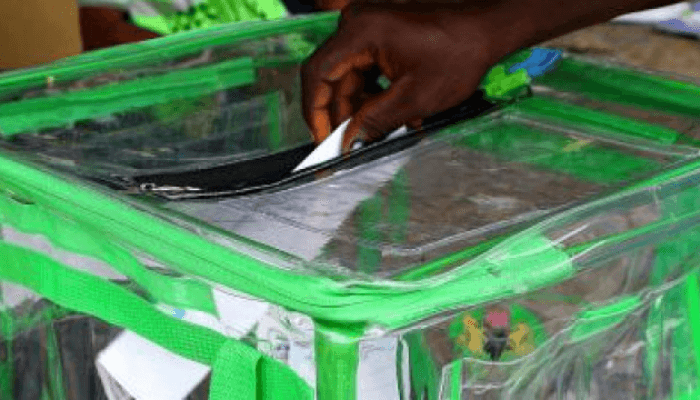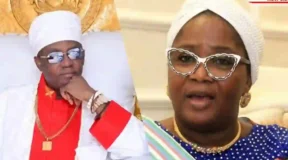Be Careful Of Dubious Endorsements
OpenLife Nigeria reports that ahead the February 25 presidential election, Dr. Akin Olaniyan, a media strategist, has cautioned voters against being influenced by financially induced social media influencers. His thoughts are reproduced below
In July 2022, just days to the gubernatorial election in Osun State, I wrote about the limits of influencer marketing in reaction to the ill-advised performance of music stars, Habeeb Okikiola otherwise known as Portable and Davido at campaign rallies of the All Progressive Congress (APC) and the Peoples Democratic Party (PDP) respectively. Then, I called attention to the selfish and conceited motivation that drives the aggressive self-branding of most celebrities and micro celebrities, the sole purpose of which is to build social capital. I also questioned their real electoral value because as past election results appear to show, street credibility and social media numbers are often at variance.
The outcry over the performance of Naira Marley at the campaign rally of the APC in Lagos early in the week again raises question on the vexed issue of using influencers in an attempt by politicians and businesses to reach the ordinary Nigerians who follow them. Typically, social media influencers have established a reputation for their knowledge and a certain level of mastery in what they do, helping them to build a large online followership. Celebrities like music stars and top footballers; micro-celebrities like skit makers and choreographers as well as others who regularly run social commentaries have built huge online presence by regularly providing entertainment and inspiration through their content. Influencer marketing is a legitimate means of selling products, services or ideas through people with social media clout. So, the music stars who accept to perform at political rallies, the micro-celebrities who market products and services for brands are not breaking any known law. That is until you look at the ethics of influencers taking their followers for a ride by failing to disclose commercial interests when they post comments and videos or when they appear at political events. There are two reasons why I think this question is pertinent as we head into another election cycle.
First, the British Broadcasting Corporation (BBC) ran a story in mid-January about how political parties were secretly paying social media influencers to spread disinformation in the run up to the presidential election. The BBC’s Global Disinformation Team confirmed our long-standing fears when is said it spoke with people who described how political parties give out ‘cash, lavish gifts, government contracts and even political appointments for their work’. Some, according to the BBC are paid as much as $45,000 or N20 million for what has always been a racket but is only recently coming under scrutiny.
For the well-trained, the murky world of influencer endorsements has always been dominated by three sets of people who have mastered the dark art of pushing products, services and ideas for money. Let us start with the most potent of them. If you were to go back to 2010, the year when ex-president Goodluck Jonathan launched a campaign on Facebook and raised the political stakes as far as social media is concerned; you would notice the activity of pseudo-intellectuals who were super clever in disguising their pursuit of social capital by appealing to progressives elements of the Nigerian pro-democratic movement. With their base on Twitter, they fronted most debates then but were most strident if brands and politicians could afford the N500,000 per tweet. From the BBC story, I won’t bet against sponsored tweets costing more these days. Second on my list are entertainers – including musicians and comedians who come in grades. Whether they are established or upcoming, it is easier to see where they belong. They simply lack the tact of the pseudo-intellectuals and are, therefore, outed by their open performances. Last on the rung are the micro-celebrities who start by marketing the odd product and service via risqué videos, then end up offering hook-up services to deep pockets. Given their desperation, this set will do anything for money; hence their ready availability for dubious endorsements. Regardless of how they got there, influencers should be considered as moral compasses. If they are being paid for their views and performances, should they be forced to make full disclosure for content that is paid for?
Second, to the extent that influencers are producing content for consumption of ordinary Nigerians, it might not be out of place to hold them up to the relatively higher standards to which journalists and newspapers are held? If journalists and newspapers have always been demonized for cash-for-stories, the corruptive practice generally called ‘brown envelope,’ why should influencers who are being paid for posts be treated differently? Imagine for a moment that like newspapers, influencers are required by law to label every sponsored content as ‘advertorial’! While that measure has failed to totally eradicate corruption in the media, it still would be a considerable positive move to rein in influencers who are exploiting the gullibility of their followers for cash.
Were we to take this course, we would be following other countries the most recent of which is India whose Consumers Affairs Department last month issued endorsement guidelines to limit ‘unfair trade practices and misleading promotions on the web’. Offenders are liable for a fine of up to $12,300 (1 million Indian rupees) while repeated offenders will pay a fine of $61,600 (5 million Indian rupees), the Indian government guidelines stipulated. The United States Federal Trades Commission (FTC) has a similar Endorsement Guideline, which requires social media influencers to disclose when they have material connections on contents there are posting. ‘A “material connection” to the brand includes a personal, family, or employment relationship or a financial relationship – such as the brand paying you or giving you free or discounted products or services,’ the FTC states, and goes on to add that such a disclosure ‘is important because it helps keep your recommendations honest and truthful, and it allows people to weigh the value of your endorsements’. Would such a move be extreme? Or would it push us into the risky sphere of social media control? It is not unlikely but the risk of doing nothing about the dubious business of paid endorsement that’s making influencers rich is far worse.
First, a word on why social media influencers have been so successful at taking people for a ride. People may blindly follow others on social media because they are truly entertained and inspired by the content produced and made available to them. Yet, others genuinely accept influencers as experts or authorities in their respective areas of mastery and would take recommendations from them as authentic. However, a vast majority of others are overwhelmed by the loads of information on social media and would rely on others to filter and curate content for them. Then of course there are those who willingly follow influencers out of clannish political and religious sentiments and are persuaded that their interests are best served within that community. Whatever the reasons are for following influencers, most community members see their membership of those online communities as a privilege and operate in them out of a sense of duty. Let’s not forget, however, that followership is often not altogether unalloyed, it works well only to the extent that the influencer and the follower, in Nigeria at least, are aligned politically and spiritually. Allegiance frequently changes in the event of a misalignment of perspectives in these two areas.
Social media having become so huge in terms of its , impact on politics, there is naturally worry about the activities of people with large online followership. It might be too much to suggest that their influence alone is enough to win votes but the fact that they can reach large numbers with paid-for-content is still a source of worry for many reasons. One, with the huge numbers in their communities, any endorsement of a political party or politician by influencers might suggest widespread appeal within large group even when this is not necessarily the case. Two, because of their social capital, influencers can distort opinion through their paid endorsements in the same way that the dominant voices of a privileged elite does in news. Three, as a result of this, such endorsements can drown dissenting views, because once influencers make their choices known, their followers are most unlikely to dissent. The big question is whether online followers who feel privileged by their membership of an influencers community and operate in them out of a sense of duty might even support moves to stop abuse. It’s difficult to answer with an affirmative yes, but from the clannish commitment we are seeing, influencers may actually be more emboldened by what I suspect would be an online campaign by their followers to stop harassing their slave masters.
As Nigerians go to the poIls, it is absolutely important that they watch out for dubious endorsements by paid influencers. As is usual with mediated communication, the concentration of power in few hands is counter-productive. Leaving influencers unchecked will be allowing them to continue to hoodwink their gullible followers while posing as opinion leaders.







